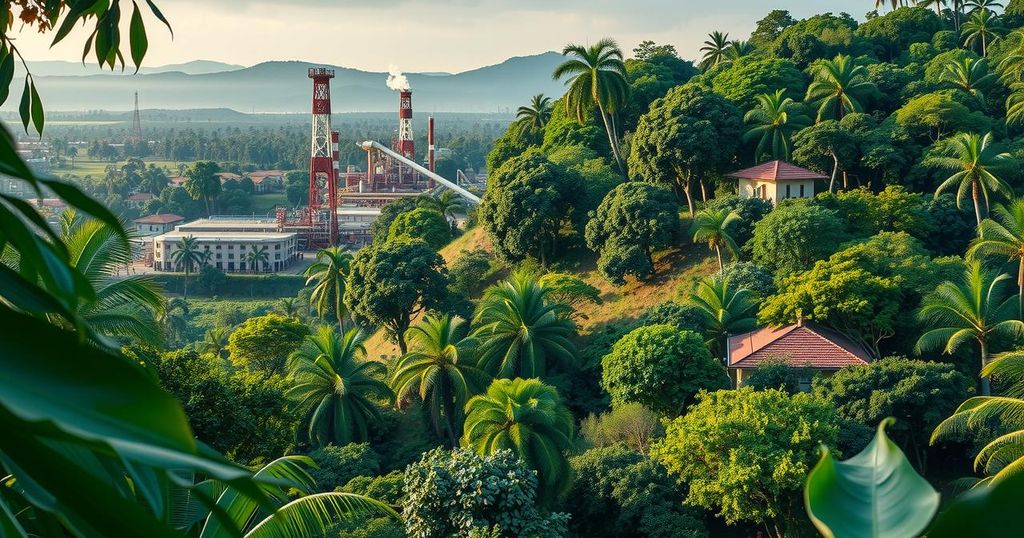Gabon Elections: Brice Clotaire Oligui Nguema’s Democratic Shift Post-Coup

Following a coup that ended decades of Bongo rule, Brice Clotaire Oligui Nguema, now a presidential candidate, defies the trend of military retention of power in Africa by promoting democratic reforms. He is positioned to win the election, promising development amidst Gabon’s resource wealth and a commitment to environmental conservation, while also facing significant governance challenges post-election.
Following a peaceful coup that ended over 50 years of Bongo family rule, Gabon is heading to the polls, defying a trend among military leaders in Africa who often cling to power. Coup leader Brice Clotaire Oligui Nguema, now a politician, abandoned his military uniform for a suit, and appears poised to win the presidency with a strong campaign slogan, “C’BON,” reflecting the population’s relief from dynastic governance.
Oligui Nguema dominates the race against seven other candidates, particularly his main competitor, Alain-Claude Bilie-By-Nze, the last prime minister of the previous regime. Victory will grant him a seven-year mandate, facilitating development and reforms in Gabon, a nation rich in oil and manganese. Despite changes in leadership, Gabon has maintained relative stability amid regional conflicts.
The military seized power after Ali Bongo Ondimba allegedly won a contested third term. Public sentiment shifted following Bongo’s push for reelection amid health concerns and perceived familial ambitions. The coup was met with delight, leading Oligui Nguema to broaden support by incorporating former rivals and political detainees into governance.
Unlike military leaders in neighboring countries, Oligui Nguema has not imposed repressive measures on dissent. His government reached out to international allies, engaging with France to transform a military base into a training center, signaling his commitment to democracy. He has also accelerated public projects and made moves to nationalize foreign oil company assets, improving fiscal conditions by raising $520 million through bonds.
Despite receiving public support, Oligui Nguema faces significant challenges. Incorporating a ban on dynastic succession in the new constitution reflects a collective demand for change. However, concerns about the concentration of presidential power could complicate governance moving forward. With political influencers joining his administration, he will need to meet growing public expectations for services and economic opportunities while balancing environmental conservation with resource exploitation.
As Gabon’s urban areas demand improved employment and resources, Oligui Nguema is anticipated to face scrutiny from various societal factions. His successful governance will likely determine the nation’s path forward, especially as it aims for sustainable development amid its diverse environmental assets.
Brice Clotaire Oligui Nguema’s embrace of democracy after a coup contrasts with trends in military-led governance across Africa. With significant public support and a commitment to reforms, he aims to address longstanding socio-economic challenges in Gabon. However, the pressures of governance and meeting public expectations will require strategic navigation amidst complexities of resource management and political responsibility. The upcoming election and his leadership decisions may define Gabon’s democratic future.
Original Source: www.bbc.com







